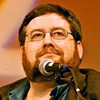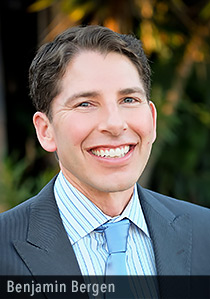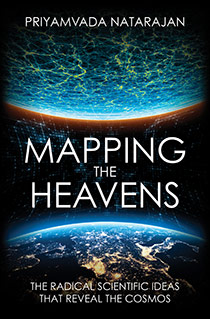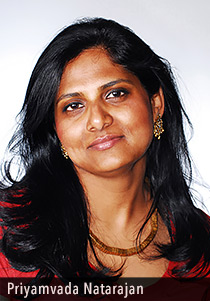In this week’s eSkeptic:

21ST CENTURY ETHICS
How Science, Reason and Empathy are Bringing a Kinder, more Realistic Morality
War, terrorism, racial oppression—is there any hope for humanity? Author and educator Michael Shermer will attempt to answer that question and others at the next Richard W. Smith Lecture in Cultural Studies on October 5, 2016 at California State University, Northridge.
The lecture, hosted by CSUN’s College of Social and Behavioral Sciences, will include a discussion of Shermer’s latest book, The Moral Arc, which explores why he believes there is indeed hope for humanity. The event will take place at 7 p.m. in the Whitsett Room, Sierra Hall 451, located on the west side of campus at 18111 Nordhoff St. in Northridge.
“As a result of Richard Smith’s generosity, the College of Social and Behavioral Sciences is able to bring to campus speakers of the quality of Michael Shermer,” said Stella Theodoulou, dean of the college. “[Shermer] provokes discussion around topics such as morality and justice that are far more than philosophical concepts, but are applicable to our everyday real life.”
Shermer has taught courses such as psychology and the history of science for more than 30 years at multiple universities. He is currently an adjunct professor at Chapman University, host of Science Salon (and previously of the Skeptics Distinguished Lecture Series at California Institute of Technology) and teaches a transdisciplinary course for Ph.D. students at Claremont Graduate University. He is known for creating Skeptic magazine, and he serves as executive director of the Skeptics Society. Skeptic magazine seeks to give a sound and scientific viewpoint about revolutionary ideas and extraordinary claims. Shermer has appeared on TV shows such as the Oprah Winfrey Show, the Colbert Report and 20/20. He was a co-host and producer for the series “Exploring the Unknown.”
The Moral Arc, which was published in 2015, reveals how science and rational thinking helped eliminate myths that societies once embraced. For example, a few centuries ago, humans were sacrificed to help calm weather gods. Today, meteorology explains different weather patterns, such as hurricanes and tornados.
Fifty years ago, students of different ethnic groups did not have access to the same level of education and were not allowed to learn in the same classrooms as whites. Today, there are classrooms full of diversity.
Shermer admits that society has a long way to go, but reflecting on the progress that has been made, he thinks it is heading in the right direction.
There will be a book signing and a small reception following the lecture.
For more information, call 1-818-677-7169 or email [email protected].
FOLLOW MICHAEL SHERMER ON
Twitter • Facebook • Insight • The Moral Arc Blog
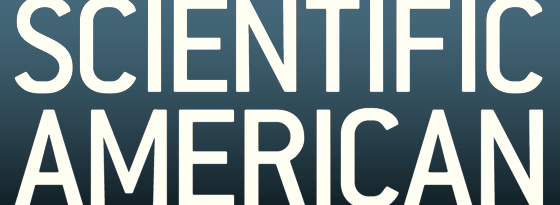
SCIENTIFIC AMERICAN “SKEPTIC” COLUMN FOR OCTOBER 2016
Methuselah’s Moon Shot: Can science and Silicon Valley defeat death?
Toward the end of his life, in an essay entitled “Topic of Cancer” in 2010 in Vanity Fair, Christopher Hitchens answered his own rhetorical query poignantly: “To the dumb question ‘Why me?’ the cosmos barely bothers to return the reply: Why not?”
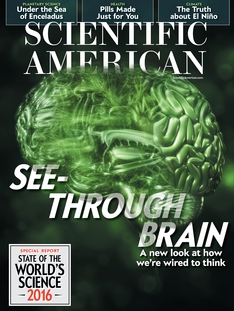
The cosmos has never been particularly loquacious with its intentions, often requiring Brobdingnagian-sized ventures—from particle accelerators and space telescopes to genome and connectome projects—to tease out its deepest secrets. Can the same be done for death? A number of scientists and Silicon Valley billionaires think it can.
Oracle co-founder Larry Ellison, for example, has given more than $430 million toward antiaging research because he finds the quiet acquiescence of mortality “incomprehensible.” XPRIZE entrepreneur Peter H. Diamandis co-founded Human Longevity, which, in conjunction with StartUp Health, launched the Longevity Moonshot, whose mission is “to extend and enhance healthy life by 50+ years and change the face of aging.”
Google co-founder Larry Page launched a biotech company called Calico, which aims to extend the human life span by a century. Calling it “a longer-term bet,” Page said he was confident they “can make good progress within reasonable timescales with the right goals and the right people.” One of those people is Ray Kurzweil, the scientist and futurist (and now a director of engineering at Google) who thinks that if we can survive until the 2040s, we can “live long enough to live forever.” […]
FOLLOW MICHAEL SHERMER ON
Twitter • Facebook • Insight • The Moral Arc Blog
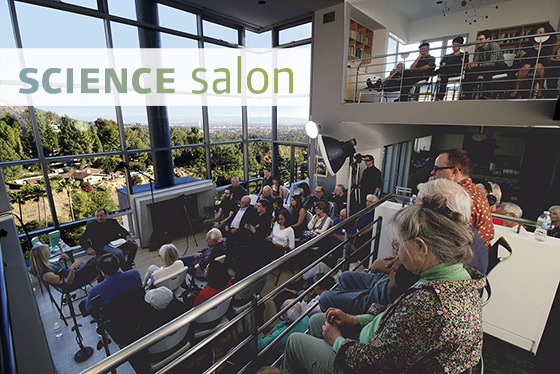
About Science Salon
In the tradition of the Enlightenment salons that helped drive the Age of Reason and the public interest in science, the Skeptics Society is pleased to announce the next two intimate Science Salons featuring an “in conversation” between Dr. Michael Shermer and professor of cognitive science, Dr. Benjamin Bergen (October 16) and cosmologist and theoretical astrophysicist, Dr. Priyamvada Natarajan (November 13). Dr. Shermer will discuss the guest’s latest science book or research project in a dialogue format, followed by an intimate conversation with the audience that allows more interaction with the guest than a formal Q&A.
IMPORTANT TICKET INFORMATION: Advance tickets are required. Tickets will not be sold at the door. Purchase by calling the Skeptics Society office at 1-626-794-3119. Seating is limited. $50 per individual (includes a reserved seat, autographed copy of the guest’s book, hors d’oeuvres and wine).
WHAT THE F
What Swearing Reveals About Our Language, Our Brains, and Ourselves
Dr. Benjamin Bergen is a professor of cognitive science at the University of California, San Diego, and in his new book he explains why profanity is so appealing to us. Let’s face it, we all swear. Whether we’re happy or mad, uttering a four-letter word seems to be a natural occurrence for most of us. But why do we swear, even when we know we’re breaking cultural taboos? Why are some words off limits in certain countries or deemed offensive in past centuries but are considered perfectly tame in others? What does all this g*ddamn swearing tell us about our language and our brains? Bergen has the answers as he illuminates the controversial and complex nature of profanity and its relationship on our culture.
Order What the F: What Swearing Reveals About Our Language, Our Brains, and Ourselves from Amazon.
Call 1-626-794-3119 now to reserve.
MAPPING THE HEAVENS
The Radical Scientific Ideas That Reveal The Cosmos
Dr. Priyamvada Natarajan is a cosmologist and theoretical astrophysicist from Yale University, specializing in dark matter, dark energy, and black holes. She also holds the Sophie and Tycho Brahe Professorship of the Dark Cosmology Centre, Niels Bohr Institute, at the University of Copenhagen, Denmark. She is passionate about sharing science with the general public and in her new book she provides a tour of the “greatest hits” of cosmological discoveries—the ideas that reshaped our universe over the past century. The cosmos, once understood as a stagnant place, filled with the ordinary, is now a universe that is expanding at an accelerating pace, propelled by dark energy and structured by dark matter. Priyamvada Natarajan is at the forefront of this research—an astrophysicist who literally creates maps of invisible matter in the universe. In the book, she not only explains for a wide audience the science behind these essential ideas but also provides an understanding of how radical scientific theories gain acceptance. The formation and growth of black holes, dark matter halos, the accelerating expansion of the universe, the echo of the big bang, the discovery of exoplanets, and the possibility of other universes—these are some of the puzzling cosmological topics of the early twenty-first century. Natarajan discusses why the acceptance of new ideas about the universe and our place in it has never been linear and always contested even within the scientific community. And she affirms that, shifting and incomplete as science always must be, it offers the best path we have toward making sense of our wondrous, mysterious universe.
Order Mapping the Heavens: The Radical Scientific Ideas That Reveal The Cosmos from Amazon.
Call 1-626-794-3119 now to reserve.



